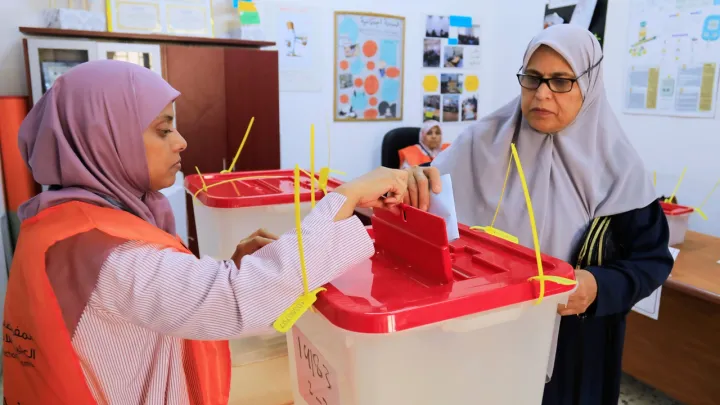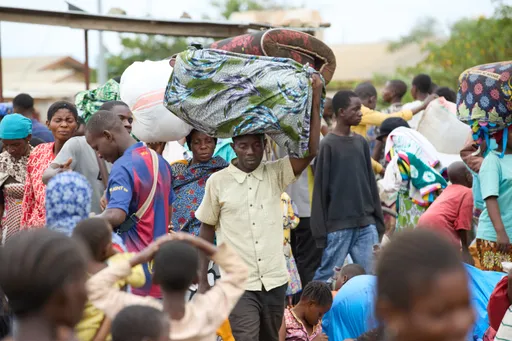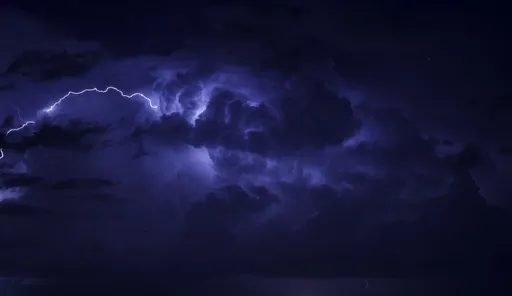Days before Togo holds legislative elections, opposition and civil society have been torn between the desire to mobilise and the fear of repression since the adoption of a controversial constitutional reform.
Lawmakers on Friday approved a reform switching from a presidential to a parliamentary system that opposition parties say will allow President Faure Gnassingbe to extend his grip on power.
The opposition fears the creation of a new prime minister-style post will allow the Togolese leader to avoid term limits to stay in office.
"We shouldn't expect much from the elections... the ruling party has nothing to fear," Jean Yaovi Degli, lawyer and former parliament relations minister, told AFP.
Opposition victory 'unlikely'
Though parties continue to campaign, hopes of a political transition following the April 29 election, postponed several times by the government, are slim.
"An opposition victory would be very difficult unless there were a revolution," Michel Goeh-Akue, a historian close to the opposition, told AFP.
"The electoral breakdown is favourable to the regime," he said, adding that there was a high risk of "ballot stuffing".
Under the new system, lawmakers, rather than the people, will elect the president which would become a largely ceremonial role with a four-year term.
Election observers
Power will effectively shift to the new post of president of the council of ministers, a kind of prime minister role, who would be the leader of the assembly's majority party.
Parliament is currently dominated by Gnassingbe's UNIR party. UNIR supporters counter that the shift to a parliamentary system will strengthen Togo's democracy.
Gnassingbe has been in power since 2005 after succeeding his father, who ruled the small West African state for nearly four decades after a coup.
Togo's Electoral Commission has refused to allow the Togolese Bishops' Conference to deploy election observers across the country, according to a document seen by AFP.
'Great sadness'
The conference president, Benoit Alowonou, expressed "great sadness" about the reform, in a recent interview with Vatican Radio.
Alowonou said the reform is a "source of division and misunderstanding" and the authorities must "listen to the people."
Fifteen civil society organisations on Tuesday signed a declaration denouncing the reform as "illegitimate" and "illegal" and demanded a presidential election in 2025.
They are calling for a rally in the capital, Lome, on May 5, the date of Togo's 1963 constitutional referendum that shifted the country from a semi-presidential to a presidential regime following the coup by the current president's father, Gnassingbe Eyadema.
Street protests banned
"We have decided to resist but it is clear that not a lot will happen because everything is being done to repress any hint of protest," said Goeh-Akue.
Street protests have been banned since 2022, after an attack on the main market in Lome in which a gendarme was killed.
Opposition parties had planned anti-reform protests on April 12 and 13, but the authorities banned the demonstrations.
Togolese authorities have also restricted press freedom.
Foreign press accreditation
On April 15, the High Authority for Audiovisual and Communication (HAAC) temporarily suspended all accreditation for the foreign press to cover the elections.
Last week, French journalist Thomas Dietrich, a critic of the authorities, was expelled shortly after entering Togo.
The move was denounced as "brutal and arbitrary" by the press freedom watchdog Reporters Without Borders (RSF).
The regional Economic Community of West African States (ECOWAS) sent an observation mission to Lome last week.
'Pre-electoral assessment'
But after initially referring to the "seriousness of the controversial constitutional reforms", it said it was only carrying out a "pre-electoral assessment" and would not commit itself "to any other process."
ECOWAS has not since commented on its visit.
➤Click here to follow our WhatsApp channel for more stories.
























